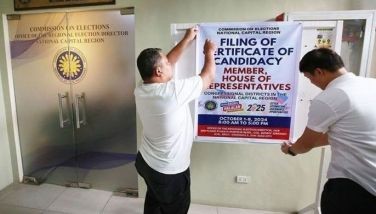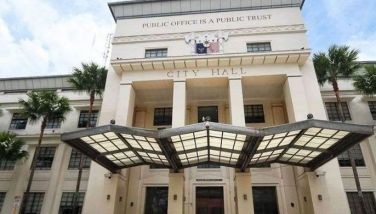Groups oppose treatment center
CEBU, Philippines - At least four environmental groups are pushing for the Cebu City Council to scrap the proposal of Japan International Cooperative Agency (JICA) to put up a P14 million treatment facility at the Inayawan Sanitary Landfill.
In a letter addressed to the Cebu City Council, Michael Enriquez of Freedom from Debt Coalition, Teodorico Navea of Sanlakas Sugbo, Aileen Lucero of EcoWaste Coalition and Corazon Amigable of KPML expressed their opposition to the proposed treatment facility.
The groups pointed out that they are against “processing mixed waste in the landfill and recycle it into plastic fluff or pellets; and using the waste as alternative fuelâ€.
Also, they said it is unlikely to convert the waste to alternative fuel as Refuse Derived Fuel (RDF) since it violates Clean Air Act and Republic Act of 9003.
The groups cited that RDF, a more heterogeneous and toxic-laden fuel, is essentially fuel made from waste that is then burned in conventional incinerators and cement kilns.
“The RDF that will be produced from the mixed waste coming from the Inayawan landfill is most likely contaminated with toxic chemicals because, due to the complexity of mixed municipal wastes, it is impossible to successfully separate hazardous and contaminated materials from recyclable materials,†the group explained.
The group further explained that when the waste is co-processed in cement kilns, these contaminated products will produce heavy metals and dioxin and furans, a persistent organic pollutant that can cause adverse health effects such as cancer.
“The RDF process, like incineration and landfilling, makes a mockery out of real waste solutions such as Zero Waste and its many strategies like waste reduction, source separation, recycling and composting,†the group said.
The group stressed that burning RDF destroys valuable materials, “given the fragile state of our natural environment and climateâ€.
With possible destructions to the environment and human race, the groups are appealing to the city council that instead of approving the treatment facility, the city government should rather implement Republic Act 9003 or Waste prevention and reduction, segregation, recycling and composting; come-up with real and sustainable rehabilitation plan for the landfill; and embrace real lasting solution as Zero Waste.
Zero Waste means to phase-out the use of plastic bags and promote ecological alternatives such as reusable bags out of indigenous materials, cloth bags, among other.
“We phase-out disposable plastics, as a temporary or stop-gap option for the existing could be, used plastic bags can be crochet into another bag, other plastic residuals such as wrappers, sachets, plastic straw, etc can be made into useful handicraft materials such as bags, wallets, decorative products such as lanterns, curtains, etc. While some can be shredded and mix with cement and made into pavements,†they added.
Yasuhiro Yamaguchi, Mansei advisor in Carbon Free Consulting Corporation, earlier said that establishment of the facility will boost the recycling business, reduce amount of landfill waste through recycling, reduce burden on final landfill site, create job for scavengers and will improve the environment.
The facility according to Yumaguchi is capable of recycling plastic waste in the landfill into plastic fluff fuel and can process at least 50 tons of waste in eight hours, producing around five tons of plastic fuel.
He, however, said the city government has to provide electricity and water usage for the facility.
But the environmental groups said that the treatment facility would entail a huge cost to the city government.
“The projected revenue of P1,000 to P1,500 per ton of plastic fluff, with 5 tons per day projected output might not be enough to cover operation costs including labor,†they pointed out.
They said the treatment facility would be appropriate and practical to use if the city opts to use solar energy as an alternative sources of energy.
In response, the city council last Wednesday during the regular session set an executive session to tackle the issues and concerns of the groups. (FREEMAN)
- Latest
























